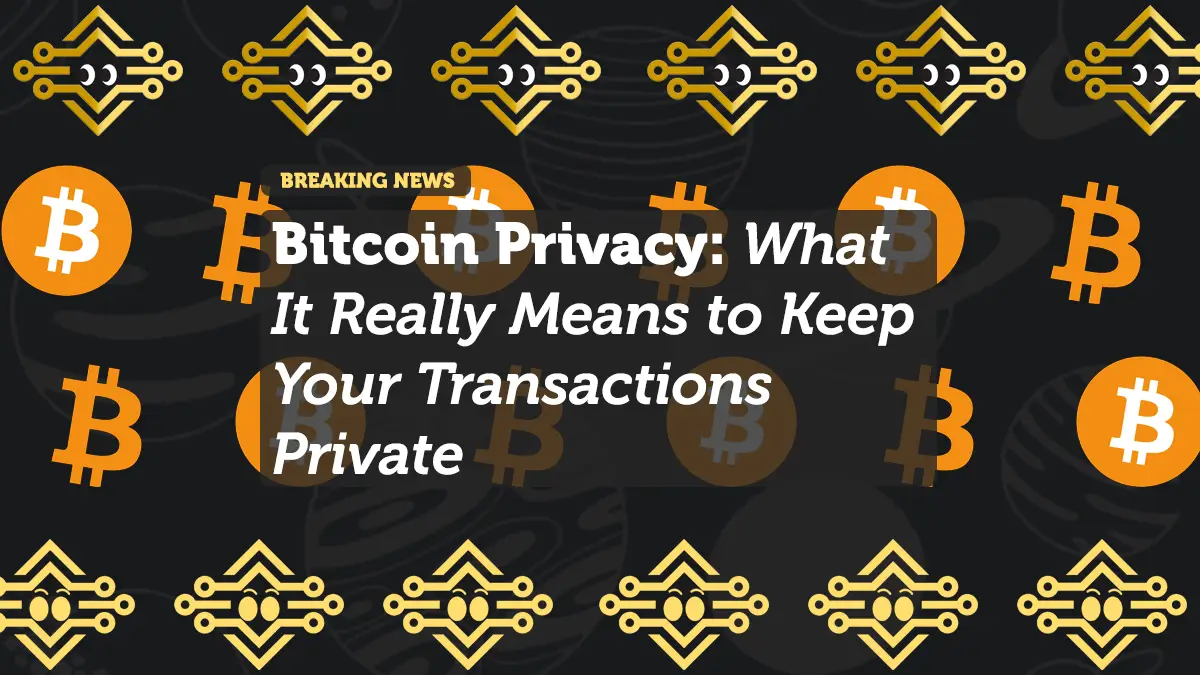
Bitcoin Privacy: What It Really Means to Keep Your Transactions Private
The promise of cryptocurrency has always been tied to freedom and privacy. While Bitcoin is often described as anonymous, the reality is more complex. True Bitcoin privacy requires effort, awareness, and the right tools. So what does it really mean to keep your transactions private—and why does it matter?
Is Bitcoin Really Anonymous?
Contrary to popular belief, Bitcoin is not fully anonymous—it’s pseudonymous. Every transaction is recorded on the blockchain, meaning anyone can see the amounts, addresses, and timestamps. What’s hidden is the real-world identity behind those addresses.
But here’s the catch: once your identity is linked to a wallet—say, through a crypto exchange that requires KYC (Know Your Customer)—all of your past and future transactions from that wallet can potentially be traced.
This is where Bitcoin privacy becomes essential.
Why Bitcoin Privacy Matters
Maintaining Bitcoin privacy isn’t just about avoiding government oversight. It’s about protecting:
- Financial security – Preventing criminals from targeting high-value wallets.
- Personal freedom – Keeping your spending habits private.
- Business confidentiality – Ensuring competitors don’t track payments or partnerships.
- Censorship resistance – Guarding against governments or institutions that may block certain transactions.
With Bitcoin adoption growing worldwide, privacy is no longer optional—it’s a necessity for both individuals and institutions.
How Bitcoin Transactions Can Be Tracked
Blockchain explorers make it easy to follow the flow of Bitcoin from one wallet to another. Chain analysis firms, often contracted by governments and exchanges, use sophisticated algorithms to:
- Link wallet addresses to real identities.
- Track coin movements across exchanges and wallets.
- Flag suspicious activity for law enforcement.
This surveillance undermines Bitcoin’s image as a tool for financial sovereignty—unless users take steps to protect themselves.
Tools to Enhance Bitcoin Privacy
Fortunately, the Bitcoin community has developed methods and tools to reclaim privacy:
- CoinJoin transactions – Mix your Bitcoin with others’ transactions, breaking the traceability link.
- Privacy-focused wallets – Wallets like Wasabi and Samourai offer built-in mixing services.
- Tor and VPNs – Hide your IP address when broadcasting Bitcoin transactions.
- Non-custodial wallets – Avoid centralized exchanges that require identity verification.
- Lightning Network – Provides faster and more private Bitcoin transactions off-chain.
The Debate: Privacy vs. Regulation
Governments worldwide are cracking down on privacy tools. Regulators argue that mixers and anonymous wallets can facilitate money laundering and illicit trade. Meanwhile, privacy advocates counter that financial privacy is a fundamental right, no different than keeping your bank account private.
This tension is likely to define the future of Bitcoin privacy, with innovation and regulation locked in a constant tug-of-war.
Final Takeaway
Keeping your Bitcoin transactions private is about more than hiding—it’s about security, freedom, and financial independence. While Bitcoin itself is transparent, tools like CoinJoin, privacy wallets, and the Lightning Network help you stay ahead of surveillance.
As adoption grows, the battle between privacy and oversight will only intensify. For Bitcoiners, the choice is clear: financial sovereignty starts with protecting your privacy.















